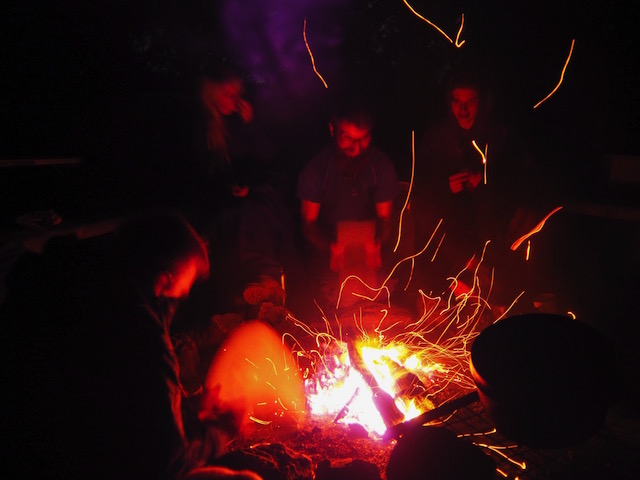Our neighbouring borough once celebrated Bonfire night by burning to the ground a huge wooden replica of the Houses of Parliament, a spectacular gesture which was met with loud approval by everyone present. The following year, when Tower Hamlets decided the theme of the celebration should be a Bengali Folk tale, the Mail Online responded by publishing a story which described the decision as ‘Political Correctness gone mad’ (in its own way a tradition every bit as British as burning Guys).
The idea that heritage and traditions should neither evolve or gather new meaning is pretty weird. Over the centuries the act of burning effigies of Guido Fawkes has been gradually emptied of its symbolism, and thank goodness for that. Doubtless, it’s important to remember and reappraise the historical context of public festivals, but it’s better to remember the other reason why such festivals endure – an instinct to join together.

A bonfire built to share warmth and light, a space for us to bring our own thoughts and reflections. The smell of woodsmoke, the chill air, and being warm on a crisp and freezing night, the hypnotic glow of embers – even the fact that a crowd naturally assembles in a circle, facing each other and being in the company of others. The poetry of this experience rests on this connection with something larger than ourselves.
Moments where we can congregate as a whole community are rare, and so all the more precious; and there are few, if any, where the invitation to participate comes without cultural baggage. Even prayer and meditation, the other occasions where it feels natural to assemble in shared silence – are predicated on an understanding which defines the group as separate from others. Often inclusive activities involve public space – in parks or recreation grounds – enjoying a picnic on sunny afternoon, or a community fun day. Far from being parochial or mundane, these activities are enormously powerful, a focal point for all, engendering a willingness to build bridges and overcome differences.
